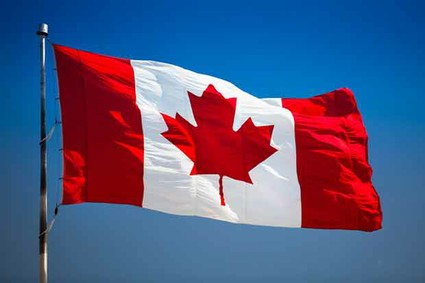Canada’s marijuana law – confusion and uncertainty, and tears
 Canada’s law introduced on October 17 this year has huge variations of how the law will apply throughout the country. This will lead to confusion and uncertainty, but ultimately it will all end in tears.
Canada’s law introduced on October 17 this year has huge variations of how the law will apply throughout the country. This will lead to confusion and uncertainty, but ultimately it will all end in tears.
YOUTH
 This is one of the most concerning aspects. A little-known provision wrapped into the law would allow kids as young as 12 to legally possess pot. The professed goal of Bill C-45 is to keep marijuana out of the hands of youth, but tucked into the law, among the pages of legislation, is a clause stating youth, ages 12 to 18, will be able to possess and share up to five grams of marijuana (about 15 joints) before facing criminal charges.[1]
This is one of the most concerning aspects. A little-known provision wrapped into the law would allow kids as young as 12 to legally possess pot. The professed goal of Bill C-45 is to keep marijuana out of the hands of youth, but tucked into the law, among the pages of legislation, is a clause stating youth, ages 12 to 18, will be able to possess and share up to five grams of marijuana (about 15 joints) before facing criminal charges.[1]
RETAILERS
When the federal government adopted legislation to legalize cannabis last June, it left it to provinces to create their own regimes controlling how marijuana would be produced and distributed on their territory. Provinces such as Alberta and Ontario decided to allow private sales of cannabis — although under strict provincial supervision. Quebec opted for state-run stores.
PRIVATE CULTIVATION
The federal law permits Canadians to grow up to four marijuana plants per residence; Quebec’s law bans all private cultivation.
PUBLIC USE
The provincial law does allow citizens to smoke marijuana in most places that smoking tobacco is legal. But individual cities were free to draft bylaws if they wanted to add further restrictions, and many jumped at the opportunity. Quebec City, Sherbrooke, Levis, Saguenay, Magog, St-Jerome, Victoriaville and dozens of others have either prohibited all consumption of cannabis in public or signalled their intention to pass bylaws to that effect. Montreal, however, announced Wednesday it would not add additional barriers to consuming cannabis.
RENTAL PROPERTIES
Mayor Valerie Plante said most Montrealers are renters, and if their landlords ban cannabis in their units, there won’t be anywhere that citizens can consume what will be a legal product.[2]
DRUG DRIVING
 Canada’s largest police forces are grappling with how to reliably — and quickly — get blood samples from suspected drug-impaired drivers. Under the new law, police can demand a blood sample once they have reasonable grounds to believe a person is impaired, such as a failed field sobriety test or a positive result on a saliva-testing device. In big cities, police forces are likely to sign contracts with medical specialists who would be on call 24 hours a day to come to police stations and draw blood within the legally required two-hour window after the suspect has been driving. But it’s not yet clear how police in smaller cities and rural areas will solve the logistical problem of getting a blood sample from a driver within two hours.[3]
Canada’s largest police forces are grappling with how to reliably — and quickly — get blood samples from suspected drug-impaired drivers. Under the new law, police can demand a blood sample once they have reasonable grounds to believe a person is impaired, such as a failed field sobriety test or a positive result on a saliva-testing device. In big cities, police forces are likely to sign contracts with medical specialists who would be on call 24 hours a day to come to police stations and draw blood within the legally required two-hour window after the suspect has been driving. But it’s not yet clear how police in smaller cities and rural areas will solve the logistical problem of getting a blood sample from a driver within two hours.[3]
WORKPLACE DRUG-TESTING RULES
Employers are arguing they need clarity on workplace drug-testing rules due to conflicting court decisions on whether random drug-testing regimes are constitutional. Canada’s human rights tribunals and labour arbitrators have generally viewed random drug-testing as a privacy violation, though a 2013 Supreme Court of Canada decision did identify some limited cases where drug-testing could be used. “There’s confusion in this space over what the rules are, what is allowed, what is not allowed, how is it to be done,” said Derrick Hynes, executive director of Federally Regulated Employers — Transportation and Communications.[4]
FIT FOR POLICE DUTY?
The Toronto Police Service is implementing a rule that would prevent officers from using the soon-to-be-legal drug within 28 days of a duty shift. In Calgary, the vast majority of police officers won’t be allowed to use cannabis, ever. Police officers in Vancouver and Ottawa will be allowed to use cannabis when they’re off work, as long as they’re fit for duty when it’s time to clock in. Federal prison guards and some other correctional staff, meanwhile, will have to avoid cannabis within 24 hours of duty.[5]
What the legal cannabis market will look like across Canada (in each province and territory)[6]
(note the inconsistency around personal growing, public smoking, retail stores)






